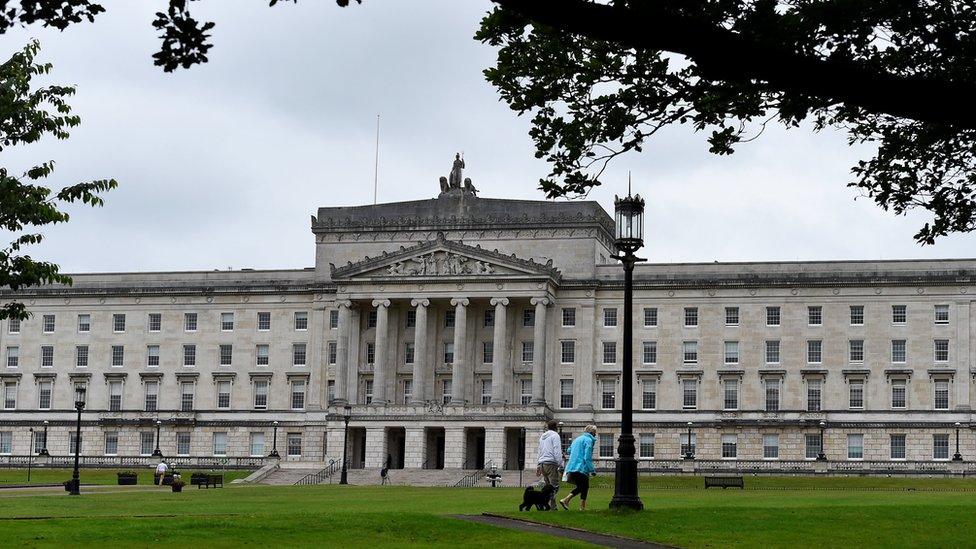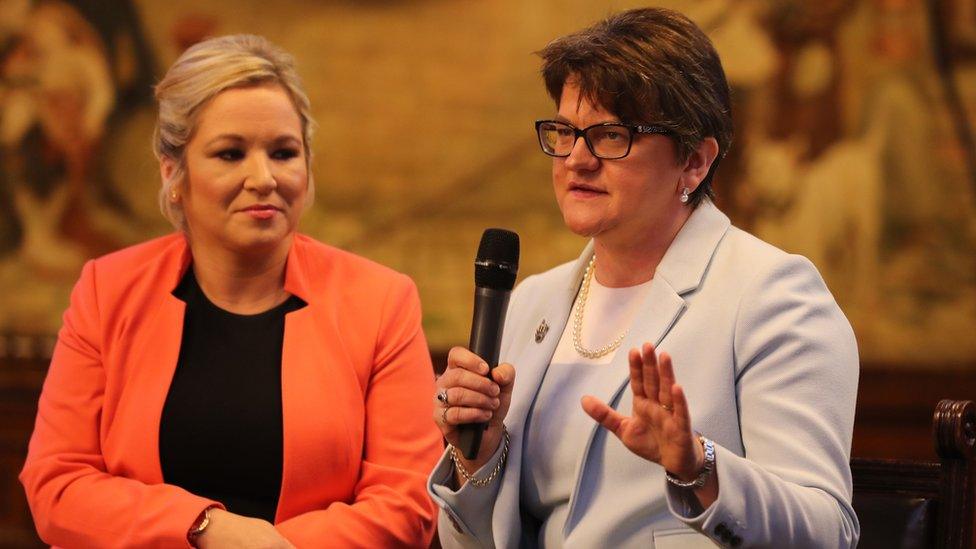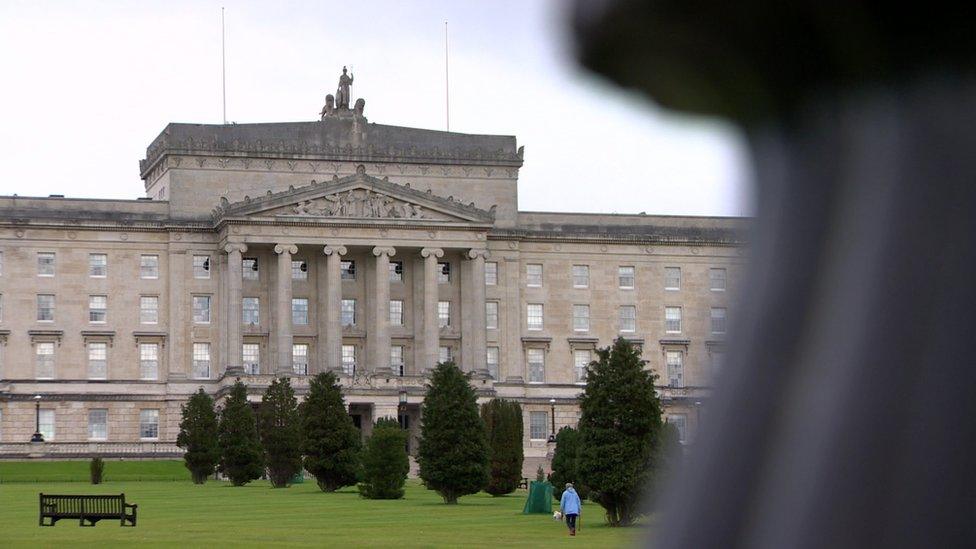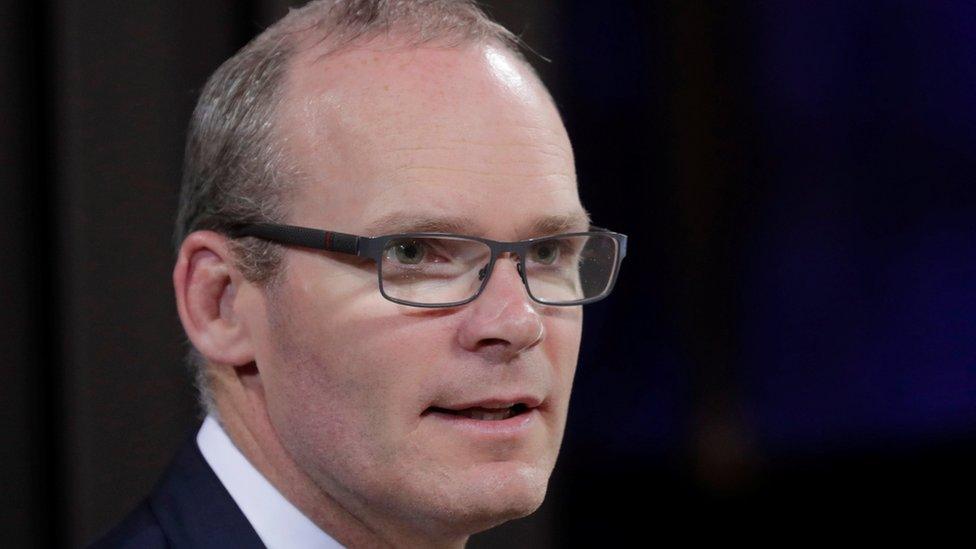Talk of Stormont deal has no basis in fact, says DUP
- Published
- comments

Suggestions that a deal to restore power-sharing at Stormont is imminent have "no basis in fact", the Democratic Unionist Party (DUP) has said.
Speculation has increased that an agreement between the party and Sinn Féin is nearing completion.
The News Letter reported on Saturday that sources had said the DUP is carrying out an informal consultation process, external about the outline of a deal.
But the DUP denied that, saying: "There is no basis upon which to consult.
"The notion that an agreement is imminent and that the Assembly will meet next week has no basis in fact given the present state of the talks."
'Very real challenges'
DUP leader Arlene Foster said on Friday that "solid progress" had been made in negotiations with Sinn Féin for the restoration of devolution.
But she warned: "Substantial issues remain to be resolved and much more work will be required if we are to reach agreement."
That reflected the view of Sinn Féin's Stormont leader Michelle O'Neill, who said on Thursday that "very real challenges" had to be addressed.

Michelle O'Neill (left) and Arlene Foster have given similar views on the status of the talks
Irish Foreign Minister Simon Coveney had said the talks are at a "sensitive" point, and added that he was hopeful of a successful outcome soon.
Speculation that a deal is nearing completion was fuelled on Friday when the government said Northern Ireland Secretary James Brokenshire had pulled out of an event in Liverpool focus on the talks.
Sinn Féin's ruling body met in Dublin on Saturday.
Irish national broadcaster RTÉ reports that Sinn Féin President Gerry Adams said the reason resolution had not been reached was "because the DUP has to get itself into a psychological space which so far it has resisted".
Emergency Westminster legislation to deal with several possible scenarios relating to the situation at Stormont could be debated on Monday, the BBC understands.
Those include a deal on restoring devolution and the need for Stormont's budget to be approved through any act in the House of Commons if a deal does not materialise.
'Judged against manifesto'
A bitter dispute between the two parties led to the collapse of the Northern Ireland Executive in January.
Both sides have blamed each other for the failure to restore it since then, with a lengthy rounds of talks failing to break the deadlock.
One of the primary sticking points is Sinn Féin's demand for legislation to give official status to the Irish language, which the DUP has consistently said it will not agree to.
In a statement on Saturday, the DUP said any deal would be judged against the criteria published in its Northern Ireland Assembly election in March.
It added that it is committed to "trying to secure an agreement that can be supported by unionists as well as nationalists".
"We will not however be a party to facilitating an outcome that is one-sided in nature and not in the best interests of Northern Ireland."
On Saturday evening, the leader of Fianna Fáil, Micheál Martin, called on the DUP and Sinn Féin to establish an executive that will deal with Brexit.
It followed comments from the Irish prime minister, Leo Varadkar, who said EU leaders need to know soon who they can talk to in Northern Ireland about Brexit.
- Published12 October 2017

- Published11 October 2017
